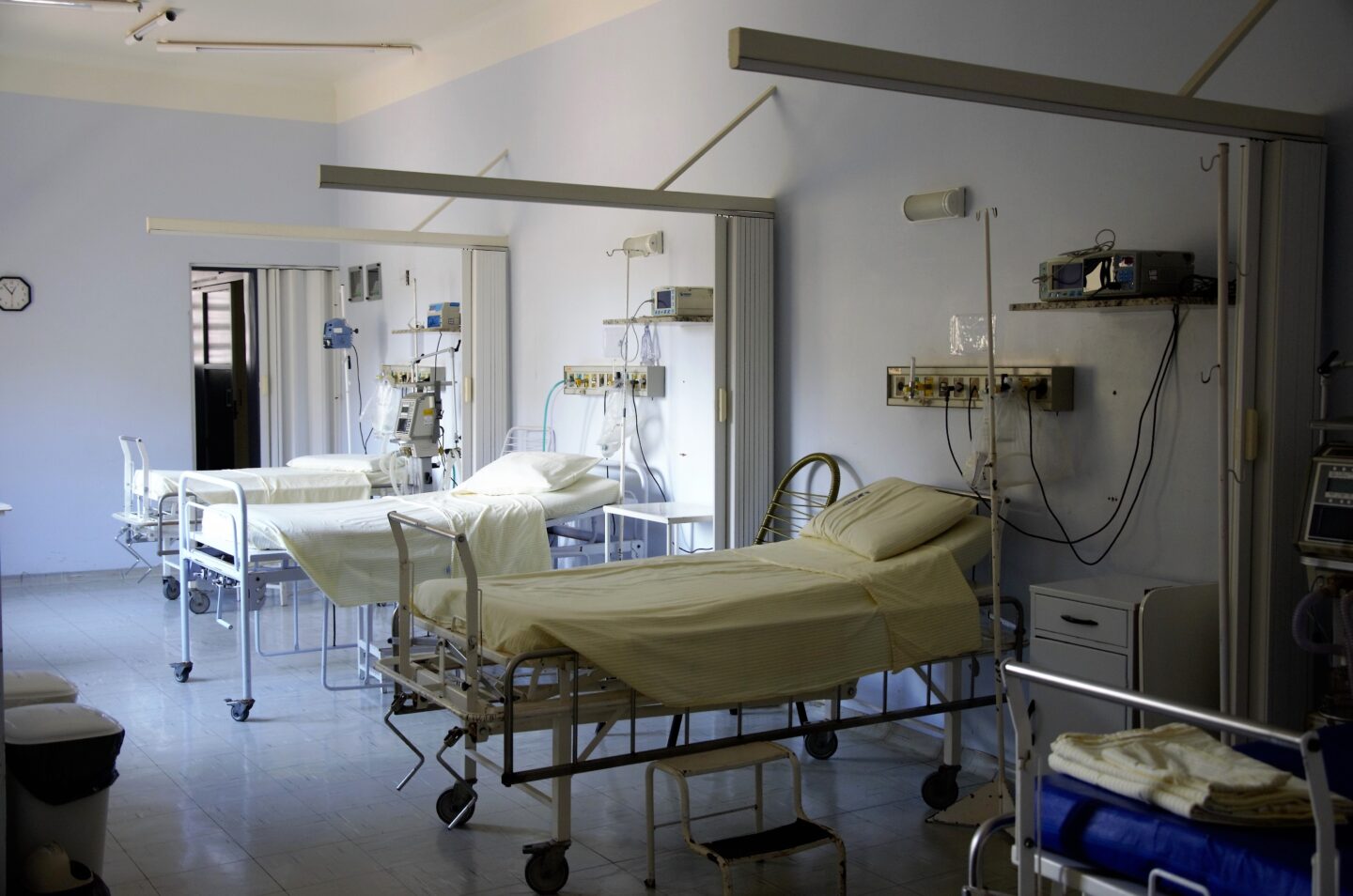Suing the NHS is something no one wants to do, but you may be left with no choice after your life is altered forever. For some more information about suing for medical negligence, read on…
There’s no denying that the NHS, and our amazing health workers, do such amazing work, day in and day out. That said, when one mistake is made, lives can be changed forever.
Suing a hospital for negligence will never be easy. You’ll likely feel stricken with guilt, and the experience will be traumatic and stressful. But, if the legal proceedings succeed, you will no doubt be much better equipped to deal with the fallback of your injuries.
Want to learn more about what situations a medical negligence case can be pursued, and how to go about it? Well, whether you’re suing the NHS for emotional distress, suing the NHS for death, suing the NHS for misdiagnosis, or anything in between, you came to the right place…

When Can You Sue a Hospital for Negligence?
Deciding whether it’s right to sue a hospital or organisation for negligence all begins with a definition. So, what is medical negligence?
All doctors, nurses, General Practitioners, surgeons, and anyone else in between, have a duty of care to their patients. Medical negligence occurs when these individuals fail to uphold these duties as a professional in the field. When these failures lead to the harm, suffering, and pain of a patient, this should be looked into further.
It’s often a little more complicated than this; after all, you can’t sue a hospital for a mistake that has minimal consequence to the patient. However, if this mistake leads to a patient injury, which affects their lifestyle, career prospects, and mental health, or even causes death, a court case may ensue.
Any situation where professional actions led to a hampering of the healing process, causing additional sufferance along the way, is included within this. So, if a healthcare professional fails to act in a timely, decisive, and sensible manner, which ends up leading to a patient suffering in the long-term, this fits the bill.
This year, the NHS put aside one percent of their overall funding, equating to around eight million pounds, for medical negligence cases. So, if you can prove that your treatment was carried out below medical standards and directly caused your injury, or that an earlier diagnosis may have affected later pain, then suing may be on the cards.
The Time Limits for Suing a Hospital
Medical negligence cases have an expiration date, which means that, if you think suing the hospital or NHS is your next step, you must take heed. Some problems arising from negligence may not surface until years later. This is why the plaintiff has up to three years after the discovering this problem to claim for compensation.
In the case of children, or other dependants who can’t act on behalf of themselves, these timelines may vary. Similarly, if the negligence case arose due to faulty medical equipment, the case must be brought forward within 10 years after the product came into circulation. Each situation will usually be looked into on a case by case basis, but these are some basic guidelines to know beforehand.
Why Would You Sue the NHS?
There are hundreds of cases where medical negligence may be the reason for your pain and suffering. Be it mental or physical suffering, some ways in which hospital negligence can cause these symptoms to surface include:
- A serious injury caused by the hospital professionals, be it in surgery or in your hospital bed;
- A misdiagnosis, which may lead to the wrong treatment and surgery, further complicating the situation;
- A late diagnosis, which may cause problems later on;
- Failure to provide necessary treatment or scans, which may have missed broken bones, or other ailments;
- Administering the wrong amount of anaesthesia during a surgery;
- Calculating the dosages of a certain medication wrong, and administering it at these incorrect dosages;
- Failure to administer the correct treatment in time, to prevent further damage;
- Operating on the wrong body part;
- No consent for treatments was sought or provided;
- If the medical professional failed to communicate test results properly, if at all;
- If the patient wasn’t warned about certain risks from a procedure or medication;
- Or, if surgery causes physical changes on the body, which severely affect quality of life and may require cosmetic surgery to fix.

Some Real-Life Examples of Medical Negligence Cases
Some of these situations may seem pretty unbelievable, but there are thousands of hospital negligence cases every year. Some classic examples, which have truly happened, include:
- A man had a fall, and he went to the hospital for his injuries, where they examined him. He later complained of foot pain, and it turned out that the x-ray had been interpreted wrong. In fact, the man really had a Lisfranc injury, meaning he suffered in pain for an unnecessary period of time.
- A woman complained to her GP of having throat problems but failed to receive a diagnosis of high-grade non-Hodgkins lymphoma. By the time the ailment was discovered, she ended up having to have extensive surgery and chemotherapy to remove the cancer, which would not have occurred if caught earlier on.
- A man suffered from a bowel perforation during a gall bladder removal and had to be taken into emergency surgery. Sepsis followed, and he has ended up with kidney problems and a weak bladder, alongside some more serious side effects.
- Someone’s Achilles tendon rupture was diagnosed late, meaning the recovery took much longer than normal.
- Two Health Boards diagnosed a man with cancer, when he didn’t have cancer at all. He ended up having to go through a radical surgery which left him with erectile and urinary problems.
What Will Suing the NHS Do?
Before going any further with suing a hospital for negligence, it’s important to know that this process will be gruelling. Court cases mean you have to relive the experience over and over, which may be pretty traumatic. What’s more, legal action may cost a lot, and will likely be pretty stressful and traumatic.
Before going ahead, you need to realise that the court cannot force a disciplinary hearing, or a hospital or individual to change their working methods. They can also not coerce a medical professional to apologise, so if these are your goals, it may not be worth it. Monetary compensation is the main goal here.
How Can I Sue a Hospital for Negligence?
Think you want to pursue a case of hospital negligence? Then first, you need to contact a medical negligence lawyer, as it’ll be difficult to file a lawsuit and sue on your own. You will need to keep hold of all your medical records, prescriptions, photos, reports, payments, and the like, to ensure the case is as strong as possible.
You also need to determine if you believe the hospital deserves to be sued, either due to their institutional practices, or the practices of one employee. You also need to think about what you hope to gain from taking this further. After all, as we’ve seen already, it’s really only monetary compensation you’ll receive if you win.
These compensation costs will help you to take care of any medical expenses incurred, any lost wages you incurred during your hospital stay, and any you might incur due to injuries down the line. Also, any further medical expenses will be covered, as well as the compensation for any lifestyle changes you’ll have to make.
If the case is strong enough, the solicitor will decide if they want to take on the case. They will also give you an indication of how much compensation they think you’ll be able to get.
Then, before accepting their help, you must decide if this is something you can afford. Can you afford the legal costs, and will your insurance protect you if you lose the case? For some more advice on how to fund legal aid, there are some great online resources to take a look at.
The most important thing to remember is to act fast. As we’ve seen, there are time limits on these issues, and the later you leave it, the less evidence there may be. So, be sure to keep an eye on your symptoms, and take action as soon as you think things have taken a turn for the worse.
For more information about thoroughly proving your medical negligence case, there are loads of resources online to help you out.
Thinking About Suing the NHS?
If you’re thinking about suing for medical negligence, it’s really important that you take into account the emotional trauma you’ll be putting yourself through. What’s more, the monetary side of it all, and the time you’ll have to put towards this case, will be strenuous.
That said, if you’re ready to go ahead, then be sure to take all this advice with you, and go for it! Do you have any advice for anyone seeking legal advice for suing a hospital? If so, do let us know in the comments below. Otherwise, good luck with your future endeavours!






